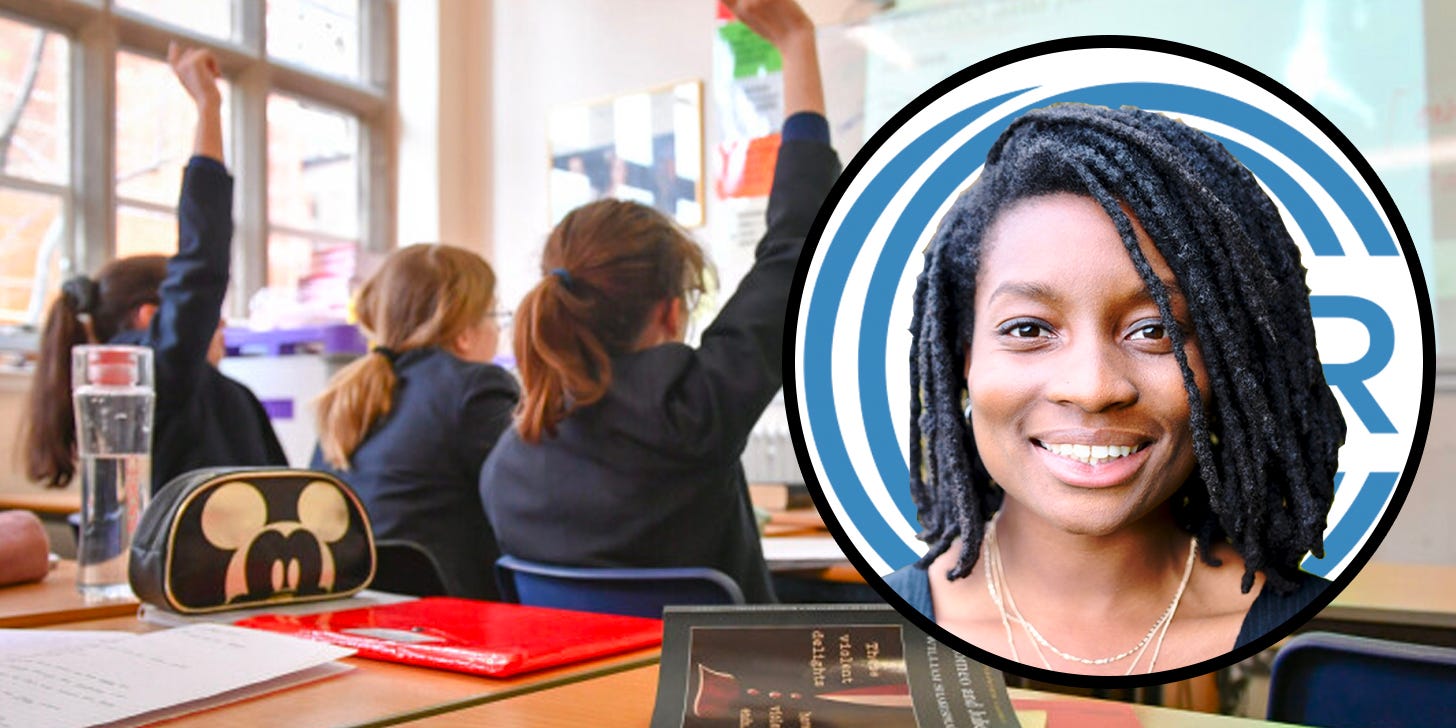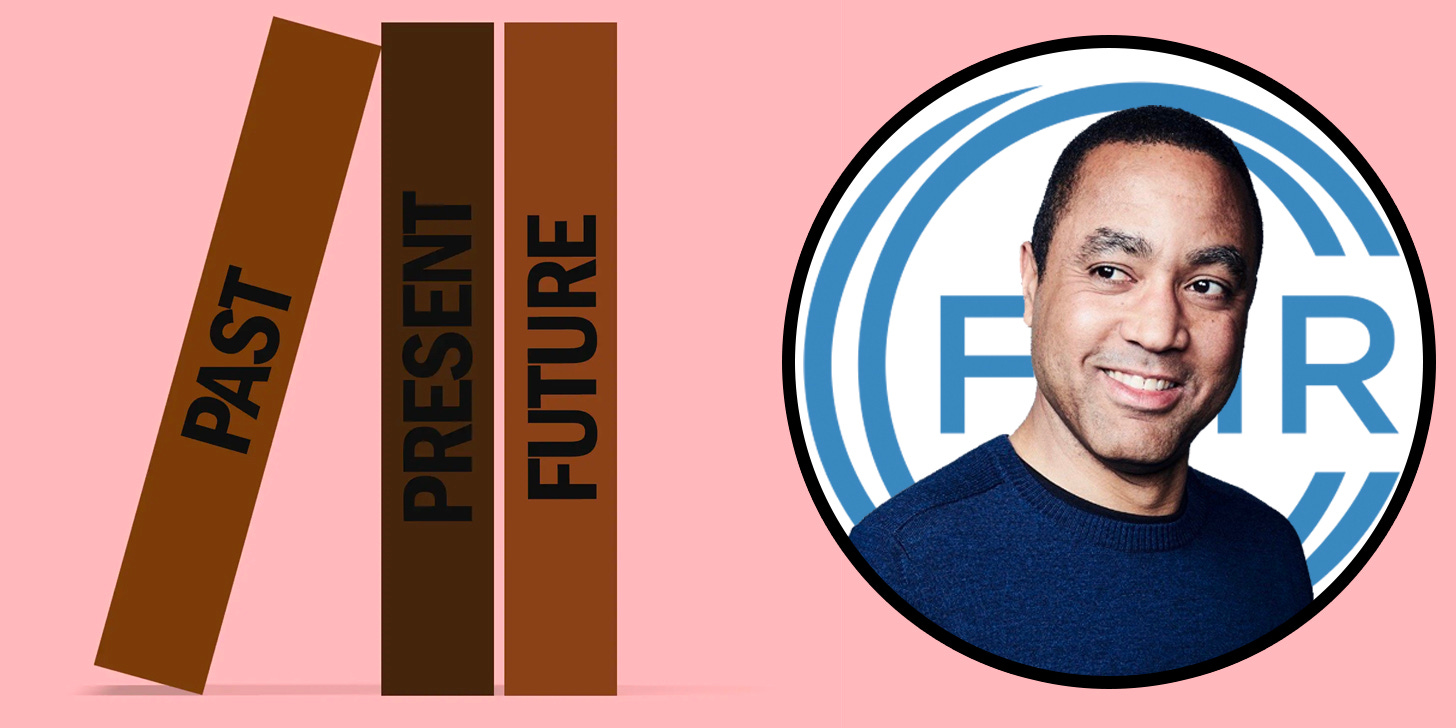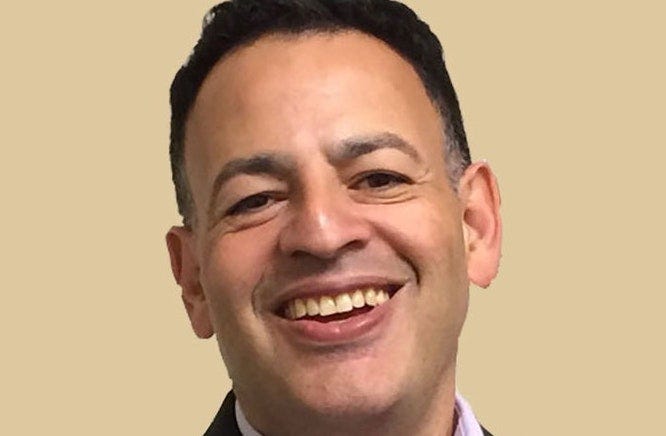I've taught racists that no group is a monolith. Anti-racists need the same lesson
For our Substack, FAIR Fellow Quay Hanna writes about his experiences “speaking to young people who hold racist and prejudicial mindsets rooted in skin color” beginning in the 1990s, noting that the common refrain by those holding to racist and essentialist generalizations was that any exception or outlier he would mention “didn’t count.” He goes on to highlight the ways that modern anti-racists echo that same refrain.
Contemporary anti-racists often bring up the inequality of income between black and white people as an example of systemic racism. But there are many economists who would disagree, including Thomas Sowell, who happens to be black. When this is pointed out, we’re told, “Well, he doesn’t count.” When the state of Virginia makes history by electing Winsome Sears—the first black, female Lieutenant Governor in its 400 years of legislative history—instead of celebrating the progress that this former slave state has made in race relations, we’re told, “She doesn’t count.” Barack Obama was elected as President of the United States twice, a fact that in the times of slavery and Jim Crow seemed impossible, and yet any time this point is made we’re told that “He isn’t really black,” or “He isn’t black enough,” or “He is an exception”—in other words, he doesn’t count.
We can't communicate, and it's killing us
FAIR in the Arts fellow Michelle Pollino writes for our Substack about our society’s growing “collective aphasia,” which she describes as “this country’s fundamental inability to speak to one another.”
The ability to express our thoughts and connect with others through words is a precious commodity that could disappear at a moment’s notice in any one of us. I’ve felt it disappear in myself temporarily—not because of aphasia, but because of fear. Fear that my thoughts aren’t welcome. Fear that I will be shunned or shamed for thinking or saying the wrong things. I see that fear in my partner’s eyes as soon as I open my mouth when we are out with friends. It happens when someone brings up something they’ve read on social media or heard on TV, or when someone pops in with a new pronoun. I watch my partner’s eyes shoot over, and I nod and smile politely, pushing my words deep inside.
Parents should have the right to know what their children are being taught, argues life peer
For GB News, FAIR Advisor Inaya Folarin Iman writes about the “growing chorus of voices demanding greater transparency in education when it comes to what school pupils are being taught about politically contentious subjects.” Iman notes the struggles of parents who had “come up against several different roadblocks when seeking further information from their schools about teaching materials and lessons on contentious subjects,” and the larger issue of transparency in the education system.
Parents frequently reported that when lessons are provided by outside organisations, the commercial interests of the company are cited as a reason why they cannot view the materials. Parents often expressed being made to feel bigoted or backwards-looking when they raised concerns about materials. This comes as former Education Secretary Baroness Morris of Yardley proposed an amendment to the Schools Bill, the Government’s flagship reform legislation currently going through Parliament, which would mean parents have the right to know what their children are being taught in schools.
Why understanding America’s exceptional history builds self-reliance
For Deseret News, FAIR Advisor Ian Rowe writes about the critical importance of an appreciation of America’s founding ideals in our youth, and the ways overly negative visions of America, such as those expressed by the 1619 Project, have a crippling effect. “One building block of agency in young people is that they must believe that they live in a good country, if not a great one; a country that is not hostile to their dreams and that, however flawed, is still full of possibilities that will reward you with great works in return for your great work.”
Building agency in the next generation will depend partly on teaching our young people to appreciate and embrace America’s founding principles rather than teaching them to denigrate and reject those ideas as somehow illegitimate because they have been too often violated in practice. Those principles have been a pathway to success for legions of marginalized groups who have shouldered “ev’ry burden, ev’ry disadvantage.” That is why we must oppose distorted histories that paint America as an irredeemably racist or inherently unjust nation.
Read These Books About the Black Experience: One Old, One New, One Coming Soon
For The New York Times, FAIR Advisor John McWhorter recommends and briefly reviews “three books about the Black experience that are on my radar—one of the future, one out right now and one from the past. Each enriches (or will) an understanding of our moment and our ongoing discussions about race in America.” The first is The Oxford Dictionary of African American English, which “will be a historical dictionary along the lines of the Oxford English Dictionary.”
The second is Agency: The Four Point Plan (F.R.E.E.) for All Children to Overcome the Victimhood Narrative and Discover Their Pathway to Power, by FAIR Advisor Ian Rowe, who “wants to make life better for Black people and sees many of his choices as ones that others would benefit from.”
The third is American Skin: Pop Culture, Big Business and the End of White America, by Leon Wynter, and which chronicles “different ways that the culture was browning, noting how refreshingly unremarkable it was that in the 1990s Britney Spears was singing and dancing in styles originated by Black Americans, and Brandy Norwood was cast as the lead in a network TV reboot of Rodgers and Hammerstein’s Cinderella.”
UC’s Proposed Ethnic Studies Requirement Is Seriously Flawed
For Real Clear Education, FAIR Research Analyst Grayson Slover writes about the University of California’s Board of Admissions and Relations with Schools (BOARS) and a recent proposed amendment to its admissions requirements—about which FAIR’s legal team sent a letter. “The proposed criteria,” Slover writes, “stipulate that all ethnic studies courses must ‘embody the foundational values of ethnic studies’—’holistic humanization’ and ‘critical consciousness’—the latter of which the criteria’s authors define as ‘the ability to recognize and understand racialized oppressive social and political conditions and to act to change those conditions.’”
Ethnic studies education…should be a space where students are encouraged to have honest and difficult discussions about our nation’s historical failure to live up to the ideals articulated in our founding documents, as well as the ways in which we have successfully attracted people from every part of the world and integrated them into the largest and most powerful multi-ethnic democracy in human history. As one of the founders of the field, James A. Banks, has explained, ethnic studies should foster “unity within diversity.” This is the approach we take in the forthcoming FAIR Introduction to Ethnic Studies, a high school ethnic studies course developed by the Foundation Against Intolerance and Racism (FAIR).
In Search of Systemic Racism
For Free Black Thought, founder of both the Jewish Institute for Liberal Values and the Institute for Liberal Values David L. Bernstein examines seven different senses of the term “systemic racism” and how we can approach discussions of them with more nuance.
A more rigorous approach to discussing and analyzing systemic racism will not answer every question about how much systemic racism exists, where it exists, and what it explains and doesn’t explain. Such questions may not be entirely answerable. However, a more exacting approach to questions of systemic racism will certainly provide for richer discussions and clearer insights into why disparities stubbornly persist and aid society in designing better solutions to these age-old problems.
Biden’s cowardly war on conversion therapy
For Unherd, Kat Rosenfield writes about the “growing sense of unease in the US, that we might have tipped too far, too fast” into what “Time magazine declared that we are living through a transgender tipping point.” Rosenfield also notes the discourse surrounding how “the Biden White House has enthusiastically taken up the cause of not just ensuring access to medical transition for children who identify as trans, but taking other treatment options off the table.”
Once, we agreed that the point was to be healed and made whole. The endpoint of the patient’s journey is that he stops being one; the doctor’s triumph is in seeing him walk out the door with high hopes that they’ll never meet again. Also in most cases, the process of healing was governed by a certain conservatism: a desire that the cure not be worse than the disease, a reluctance to adopt extreme measures when more moderate ones might suffice. And so your doctor would likely prescribe physical therapy before surgery, or try to restore healthy function to the organs you have before removing them from your body and replacing them with transplants. The most invasive, disruptive, and destructive treatments — amputation, chemotherapy — were understood as last resorts, to be held back until and unless they would make the difference between life and death.
For audio versions of our FAIR News and FAIR Weekly Roundup newsletters, subscribe and listen to FAIR News Weekly on Apple Podcasts, Spotify, Google Podcasts, or via RSS feed.
Join the FAIR Community
Become a FAIR volunteer or to join a FAIR chapter.
Join a Welcome to FAIR Zoom information session to learn more about our mission, or watch a previously recorded session in the Members section of www.fairforall.org.
Take the Pro-Human Pledge and help promote a common culture based on fairness, understanding, and humanity.
Join the FAIR community to connect and share information with other members.
Share your reviews and incident reports on our FAIR Transparency website.













